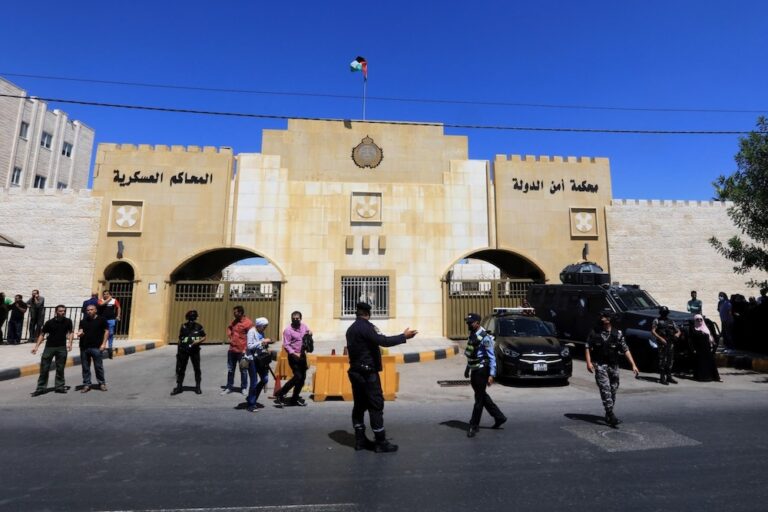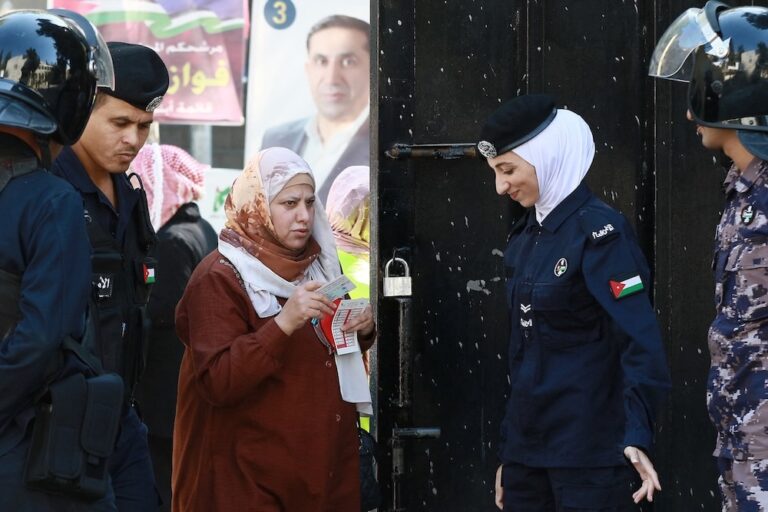(CPJ/IFEX) – On 2 June 1998, the Amman Court of First Instance sentenced Nidal Mansour, editor-in-chief of the weekly “Al-Hadath”, to six months in prison. Mansour was charged under Jordan’s penal code with harming the country’s relations with a friendly state in connection with a 1994 article published in the weekly “Al-Bilad”, which Mansour headed […]
(CPJ/IFEX) – On 2 June 1998, the Amman Court of First Instance sentenced
Nidal Mansour, editor-in-chief of the weekly “Al-Hadath”, to six months in
prison. Mansour was charged under Jordan’s penal code with harming the
country’s relations with a friendly state in connection with a 1994 article
published in the weekly “Al-Bilad”, which Mansour headed at the time as
editor-in-chief. The article reported on allegations in Lebanon about the
involvement of Lebanese parliamentarians and the son of President Elias
Hrawi in narcotics trafficking. The story was widely reported in both the
Lebanese and international media. Mansour is free pending the outcome of his
appeal.
The ruling against Mansour is the latest in a series of criminal convictions
handed down against Jordanian journalists in 1998. On 16 March, the Court of
First Instance convicted Raja Talab, editor-in-chief of the weekly “Shihan”;
Riad Hroub, the paper’s publisher; Riham Farra, a columnist; and Abdel Hadi
Raji Majalli, a former editor, of defaming parliamentary deputy Muhammad
Ra’fat. The four journalists were each sentenced to six months in prison and
a fine of 1,000 JD. The basis for the charge against them was an article and
a cartoon published in “Shihan” in late 1997, which criticized Ra’fat for a
visit he made to the Israeli Knesset. All four have appealed the court’s
decision. (see IFEX alert of 20 March 1998).
CPJ is aware of at least three other criminal convictions handed down
against journalists in 1998, all which are currently under appeal. Other
journalists face new criminal prosecutions such as Bassam Badareen, the
Amman correspondent for the London-based daily “Al-Quds al-Arabi”, who was
formally charged in early March with “distorting Jordan’s image abroad,”
harming state relations with a friendly country, and offending the state –
charges criminalized under the penal code. The case against Badareen stems
from a series of articles he wrote for “Al-Quds al-Arabi” in late 1997,
dealing with such topics as tensions between the government and the Islamist
opposition following its boycott of last November’s parliamentary elections,
and criticism of the Arab-Israeli peace process. Badareen faces up to three
years in prison if convicted of the charges. (see IFEX alerts).


